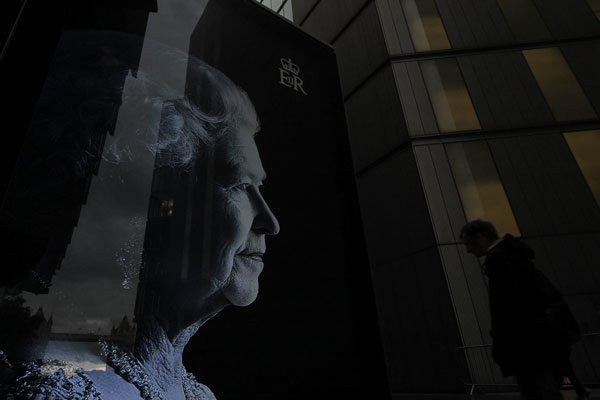Prime
Why Africa and Africans are treated with disdain

Moses Khisa
What you need to know:
As Black, the quality and character of your content are secondary. Instead, your skin colour is primary; it trumps everything else
I didn’t follow much of the ceremonies and festivities around the funeral and burial of the British monarch but for one image that went viral and was all over social media – African leaders (or is it rulers?) driven to the main venue of the burial in a common bus. More on this in a moment.
I need to back up a little bit. Early on, with a British Queen departing after 70 years on the thrown, I was struck by a BBC broadcast that claimed there was shock at her death. The Queen was 96, for Christ’s sake. Why would anyone be shocked at her passing?
My old man, Mzee Hassan Wanyera (God bless his soul), a loyal subject of Her Majesty and a great admirer of the colonists for whom he worked as a young man in the 1940s and 50s, signed out in 2018 at the ripe age of 90.
My father’s death was sudden, so as a family we were somewhat devastated. I had just arrived home on a normal and routine trip back for the Christmas holiday when the old man greeted my arrival with a swift sign-off from the life of this world.
For a moment, I was confused and couldn’t come to terms with my father’s departure. But then I had to sober up and face the reality: at 90, my father had lived a full life. What about a monarch at 96 having lived in privilege from birth and especially for the 70 years on the throne? Enough diversion.
Back to the issue – African presidents and heads of government or their representatives found themselves without the long motorcades they are used to back home. They were bused.
The images of this situation compelled some commentators to chide African rulers: take a lesson, cut the crap and know you can ride modestly. If it’s about security, there is scarcely any justification for a 50-vehicle motorcade.
But another line of assertion reacting to the image of Kenya’s William Ruto, as always smiling, and Tanzania’s Samia Suluhu Hassan looking rather dejected and a host of others flashing unpleasant reactions, pointed to the sheer humiliation of African leaders. After all, this is not what other leaders of so-called powerful nations (of the West) were subjected to in London.
Yet a perceptive person may quickly note that many leaders in the West lead relatively modest lives; with no motorcades and unnecessary power pomp. Some even ride bicycles to work!
There is a bigger issue though that we need to face squarely: Africa and Africans are still treated with utter disdain, world-over. It doesn’t matter whether you are a head of state, a billionaire, an accomplished professional, or a non-skilled labourer. Being black or brown is enough to earn you a lesser reception and be second-class.
As Black, the quality and character of your content are secondary. Instead, your skin colour is primary; it trumps everything else. When you read up on history, you realise that this was not always the case.
The assigning of Black people to an inferior race, as the race to be enslaved and treated as lesser, is fairly recent and dates back to the Atlantic Slave Trade that intensified during the Eighteenth and Nineteenth centuries.
Before the Atlantic Slave Trade, many readers might be surprised to learn, slavery was a worldwide practice; it was not racial. That is, any race could be enslaved. It was not Africans or Blacks who were the exclusive slave race.
I don’t have space here to get into the details, but it is a historic fact that we should underline: why did Africans become the ‘slave race’ in relatively recent history, dating back approximately 400 years ago?
The Atlantic Slave Trade was a vicious and aggressive enterprise. It turned around the institution of slavery, and transformed slavery from non-racial to racial, from local to global with enormous long-term implications.
From then on, a Black person, the African, became a second class human being. In the United States, before the famous civil war, you were three-quarters of a person.
This broad history is arcane and complicated, there is simply not enough space and time to provide a meaningful outline here. So I have to exit what might be a rather abstruse analysis and return to the crux of the matter: why are we, Africans, treated with so much disdain, disrespect, and no dignity?
A simple answer is that we are not seen as full human beings, but this is a little facetious and begs the question. My personal hunch is that Africans continue to face humiliation and indignity because we allow it, we fail to refuse to be treated as such, to say no, and thus we maintain a projection of a people without urgency and at the mercy of outsiders.




